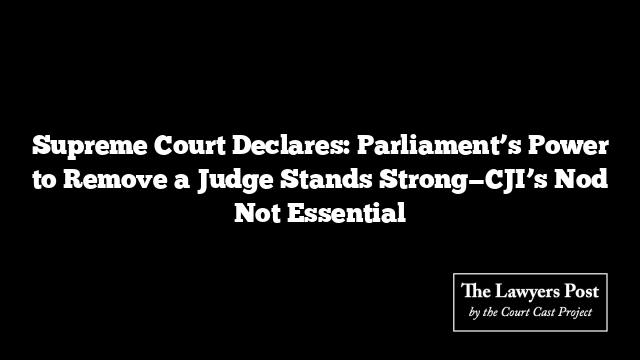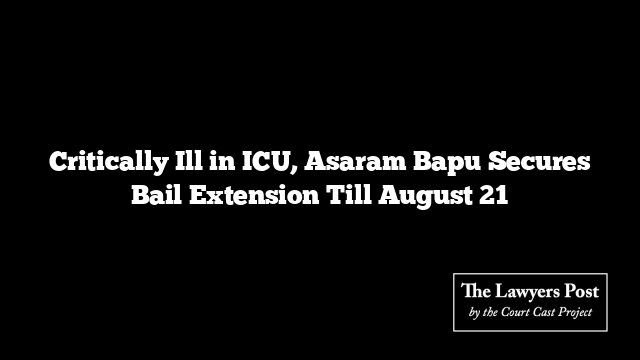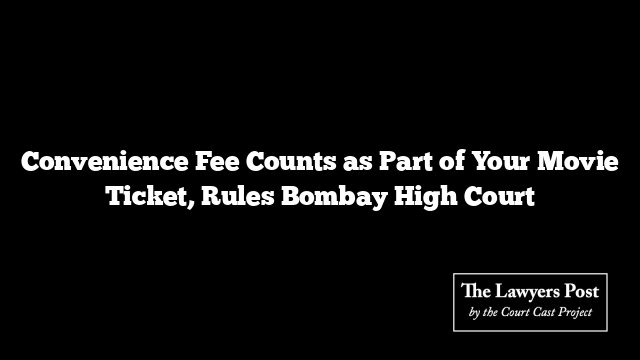In a ruling that draws a sharp boundary between judicial procedure and legislative authority, the Supreme Court has affirmed that Parliament’s power to begin removal proceedings against a judge remains untouched—even if the Chief Justice of India (CJI) chooses not to recommend such action.
A Bench of Justices Dipankar Datta and Augustine George Masih addressed the claim that the in-house system devised by the Supreme Court for examining complaints against judges functions as an “extra-constitutional” process. The Court firmly disagreed, stating that this mechanism does not limit Parliament’s constitutional authority in any way.
“Report or no report, recommendation or no recommendation—the power of Parliament to act on allegations of misbehaviour or incapacity is unfettered,” the judgment declared. It noted that while Parliament may choose not to act even when strong grounds exist, it may equally decide to proceed despite a lack of endorsement from the CJI.
The ruling emphasised that legislative discretion is absolute: no judicial order can compel Parliament to initiate removal proceedings. As the Court put it, the institution is free to decide “what is in the best interests of the nation,” unconstrained by the in-house process.
This case arose from a plea by Justice Yashwant Varma of the Allahabad High Court, challenging an in-house inquiry launched after unaccounted cash was discovered at his official residence following a fire. The fact-finding committee recommended removal proceedings, and the CJI forwarded the report and the judge’s response to the President and Prime Minister. Justice Varma argued that the process violated constitutional protections for judges.
The Supreme Court rejected this argument, clarifying that the in-house procedure does not breach the Judges (Protection) Act and that it would be “unreasonable” to expect the CJI to stay silent in the face of serious allegations.
The Court underscored that maintaining institutional integrity may require immediate steps by the CJI, independent of Parliament’s timeline, and that judges themselves should act prudently to avoid forcing the system into such drastic measures.





